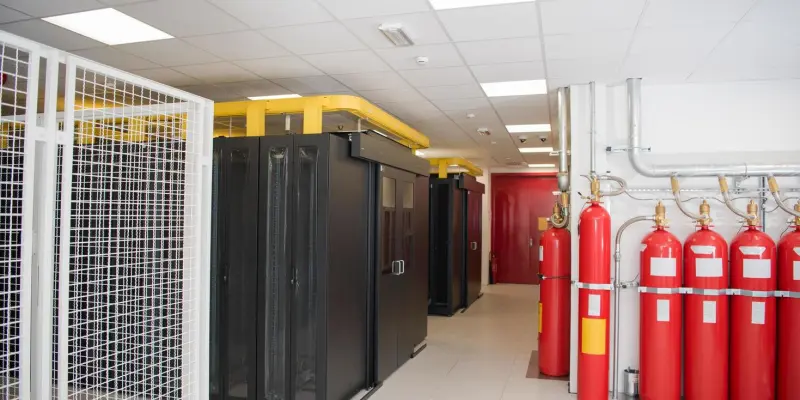Pittsburgh is transforming into a significant player within the expanding Midwest tech corridor, driven by a major investment in data center infrastructure. The city, traditionally known for its industrial heritage, is now embracing the digital age with a $10 billion data center project on the site of the former Homer City coal plant in southwestern Pennsylvania. This ambitious project underscores Pittsburgh’s commitment to enhancing its technological landscape and boosting its status as a tech hub, with a focus on artificial intelligence capabilities, digital infrastructure development, and securing private investments.
Economic and Technological Impact
As Pittsburgh seeks to solidify its position in the tech industry, the economic and technological impacts of such a massive infrastructure project are profound. Data centers, while critical in the digital economy, come with substantial energy and water demands. In 2023, data centers were responsible for 4.4% of global electricity consumption, a figure expected to rise to 12% by 2028. Additionally, fewer than one-third of data centers monitor their water usage, which can lead to significant environmental impacts. Hyperscale data centers, defined as those with over 5,000 servers, can consume as much water annually as 12,000 Americans.
Despite these challenges, the benefits of data centers cannot be understated. The construction phase of such projects generates significant economic activity, including job creation, increased spending in local economies, and strengthened supply chains. While the number of permanent jobs created by data centers may be relatively low, the overall contributions to the local economy can be substantial. In Pennsylvania, data center jobs grew by over 48% from 2018 to the present, reflecting the industry’s increasing footprint in the state.
Policy and Infrastructure Development
To attract data center investments, states like Pennsylvania offer a range of incentives, including tax benefits and substantial state grants. Pittsburgh’s appeal is further bolstered by its access to water resources, available industrial land, and natural gas supplies. However, the decision-making processes behind these projects often lack transparency, as local governments and companies operate under non-disclosure agreements (NDAs). This lack of transparency can obscure important details about energy and water consumption, raising concerns among environmental and community advocates. The transformation of the Homer City coal plant into a cutting-edge data center exemplifies the region’s commitment to modernizing its infrastructure. Innovations, such as new cooling technologies, water recycling systems, and small nuclear reactors, offer potential solutions for optimizing energy and water usage within data centers. Pennsylvania’s data center development, however, still lags behind other states like Ohio, Illinois, Virginia, and New York. Ongoing discussions by the Pennsylvania Public Utility Commission will play a crucial role in addressing the future impact of data centers on the state’s power grid, ensuring that the necessary infrastructure upgrades keep pace with the growing demand for digital services.
Broader Economic Benefits
Beyond the direct economic impacts, data centers also contribute to broader economic development in the regions where they are located. By driving demand for local services and products, data centers can enhance local supply chains and increase employee spending, leading to a more robust local economy. The tax revenue generated by these projects further supports public services and infrastructure improvements, benefiting the wider community. The Homer City project illustrates the potential for transformative economic development. With the promise of producing significant power and creating 1,000 permanent jobs, the project represents a substantial investment in the future of Pittsburgh’s tech ecosystem. As AI capabilities and digital infrastructure continue to advance, Pittsburgh’s position within the Midwest tech corridor is expected to strengthen, drawing further investments and fostering innovation in the region.
Future Considerations
Pittsburgh is emerging as a significant player in the growing Midwest tech corridor, thanks to substantial investment in data center infrastructure. Historically recognized for its industrial roots, the city is now pivoting to the digital era, marked by a transformative $10 billion data center initiative on the former Homer City coal plant site in southwestern Pennsylvania. This ambitious endeavor highlights Pittsburgh’s dedication to nurturing its technological ecosystem and solidifying its reputation as a burgeoning tech hub. The focus is on fostering artificial intelligence advancements, developing robust digital infrastructure, and attracting private investments. Furthermore, this shift illustrates Pittsburgh’s ability to adapt and evolve, aligning itself with broader tech trends that promise economic growth and innovation. By transforming an old coal plant into a cutting-edge data center, Pittsburgh is setting a precedent for smart urban redevelopment, signaling a vibrant future for the city’s high-tech prospects and its position in the expansive tech corridor of the Midwest.

